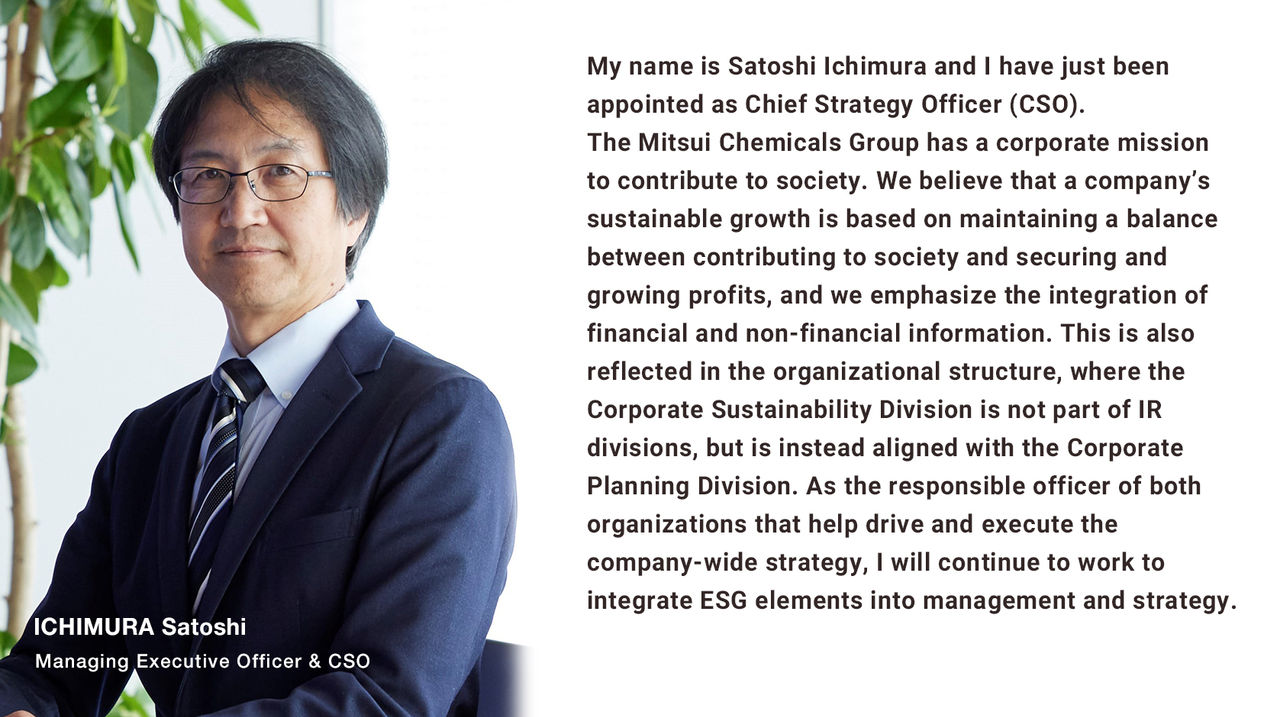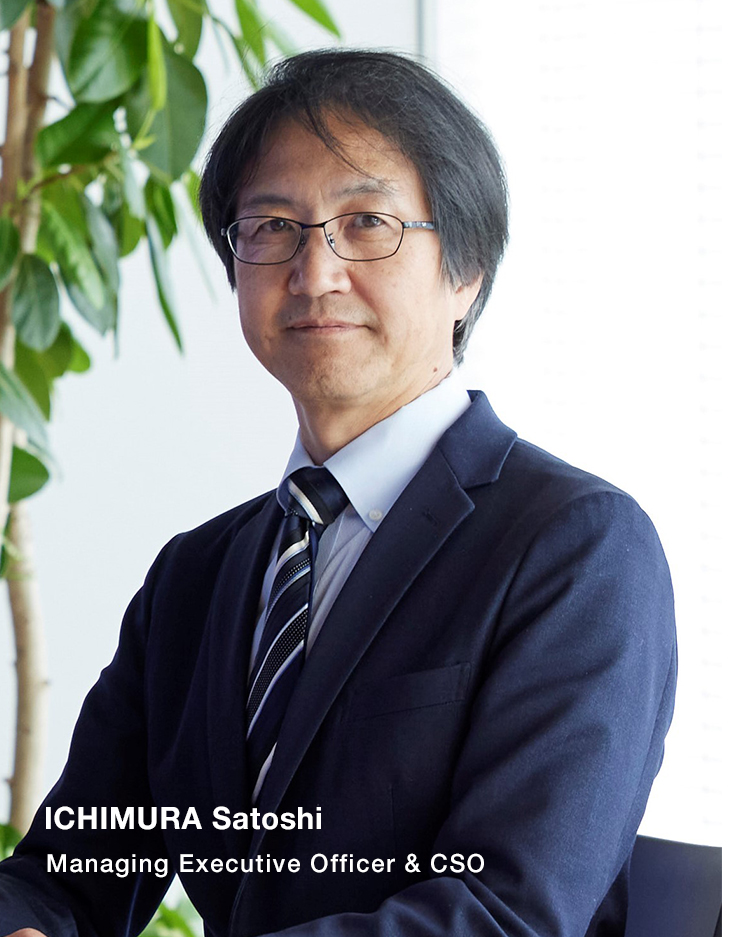My name is Satoshi Ichimura and I have just been appointed as Chief Strategy Officer (CSO).
The Mitsui Chemicals Group has a corporate mission to contribute to society. We believe that a company’s sustainable growth is based on maintaining a balance between contributing to society and securing and growing profits, and we emphasize the integration of financial and non-financial information. This is also reflected in the organizational structure, where the Corporate Sustainability Division is not part of IR divisions, but is instead aligned with the Corporate Planning Division. As the responsible officer of both organizations that help drive and execute the company-wide strategy, I will continue to work to integrate ESG elements into management and strategy.


